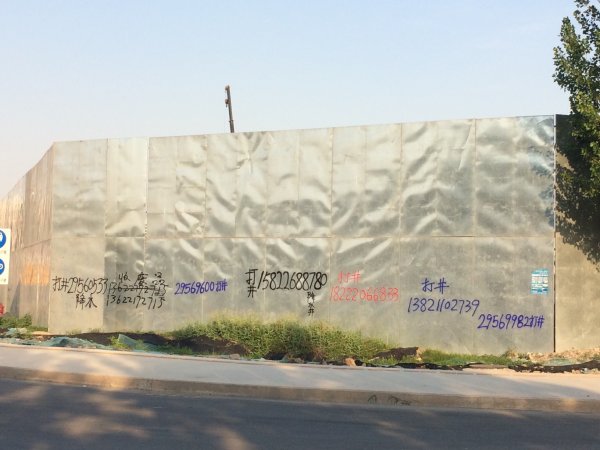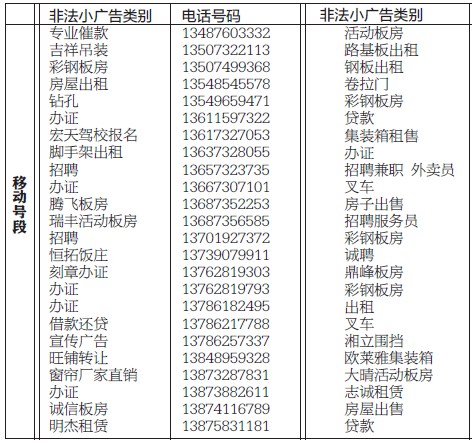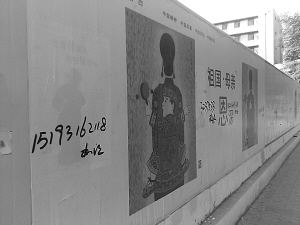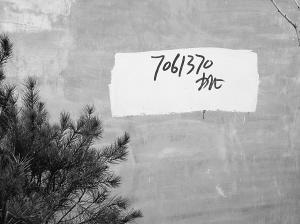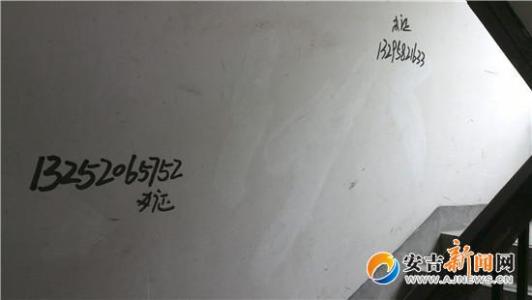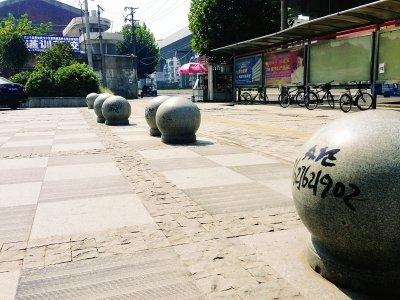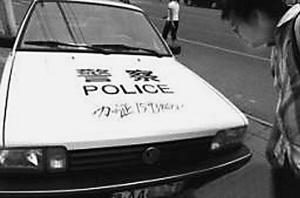Near campus, there are construction sites for apartments, and one of them has this writing on it:
Repeatedly written is 打井 (dǎjǐng) = "to dig a well", along with a phone number. It's possible that these are all advertising some kind of well-digging service, but it seems an unexpected place to choose to advertise, especially when there's more than one of them. It makes me think there's more to this story.
Question: Why are people writing 打井 (dǎjǐng) = "to dig a well" on this construction site wall?
The other words seem to be:
